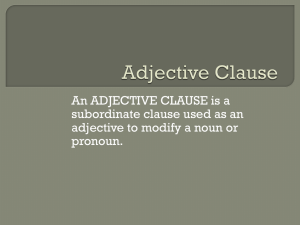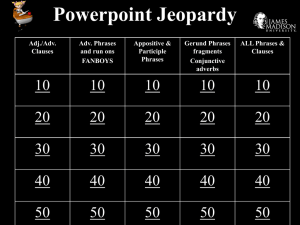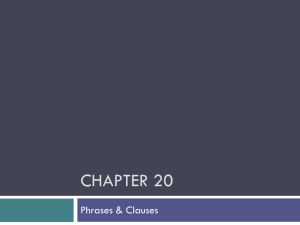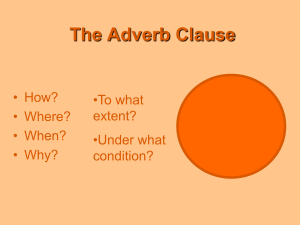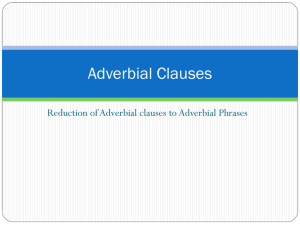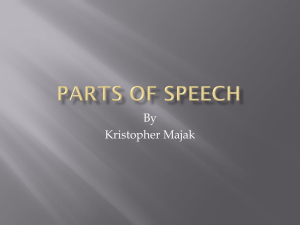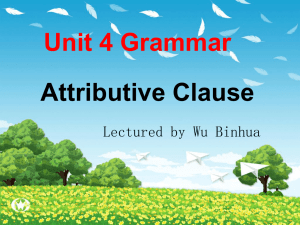Reduced Clause
advertisement
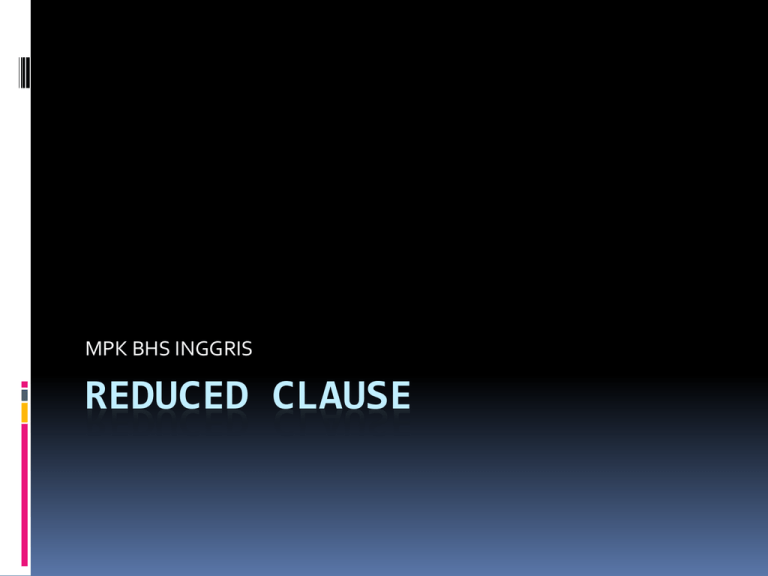
MPK BHS INGGRIS REDUCED CLAUSE Reduced Clause Adjective Clause Adjective Phrase (1) Clause: The man who is eating the cake is my friend. (The subject pronoun and the be form of the verb are omitted) Delete: Who Delete: Is Phrase: The man eating the cake is my friend. Adjective clause Adjective phrase (2) (If there is no be form of a verb in the adjective clause, it is sometimes possible to omit the subject pronoun and change the verb to its –ing form.) Clause: Indonesian has an alphabet that consists of 26 letters. Phrase: Indonesian has an alphabet consisting of 26 letters. V (active) V ing V passive Ved or past participle Adjective clause that cannot be changed into reduced clause is whom, where, when, relative pronoun+ preposition, whose. Adverb clause Adverb phrase An Adverb clause can be changed to an adverb phrase only when the subject of the adverb clause and the subject of the main clause are the same. No change possible: When the teacher was lecturing to the class, I fell asleep. Only Adverb of clause for time, cause and condition/ contrast. Adverb of clause Time: When, While, Before, Until, After Cause: Since, Because Contrast/ Condition: Although, Though, Eventhough Adverbial subordinator that can be eliminated: While and Because Reduced Clause Adverb clause Adverb phrase (1) Clause: While I was writing the essay, I heard the telephone ringing. (Omit the subject of the dependent clause and the be form of the verb) Phrase: While writing the essay, I heard the telephone ringing. Adverb clause Adverb phrase (2) Clause: Before I write the essay, I make the outline first. (If there is no be form of a verb, omit the subject and change the verb to v-ing.) Phrase: Before writing the essay, I make the outline first. Notes: You can also eliminate the subordinator because and while if you want. 1. 2. 3. 4. 5.

